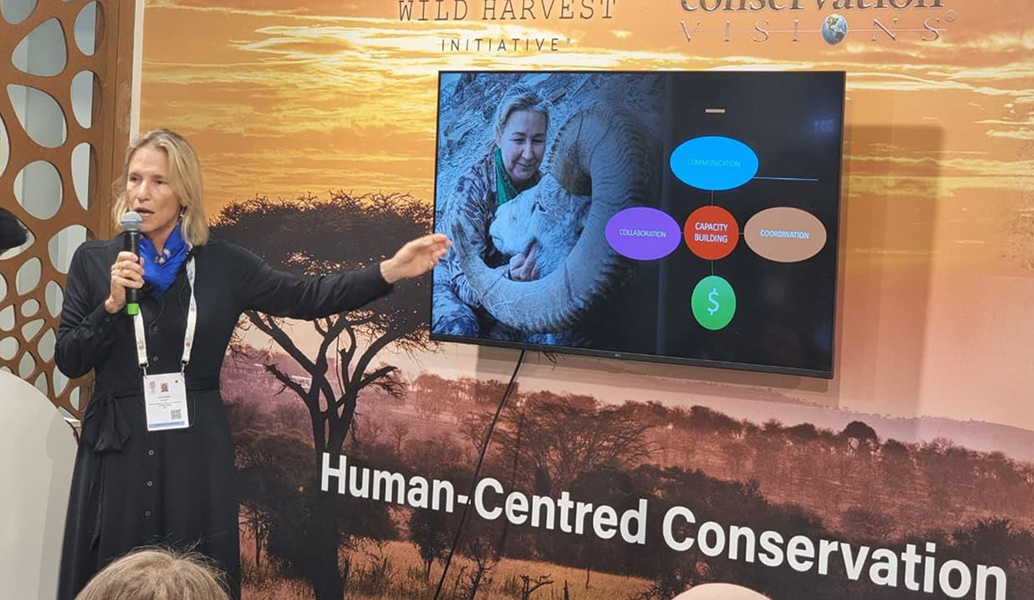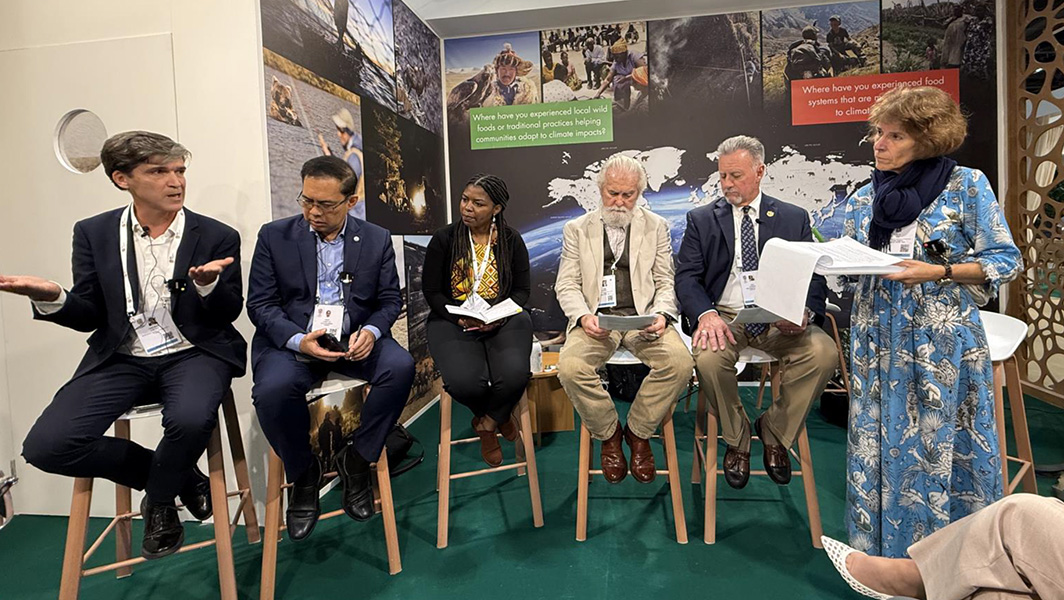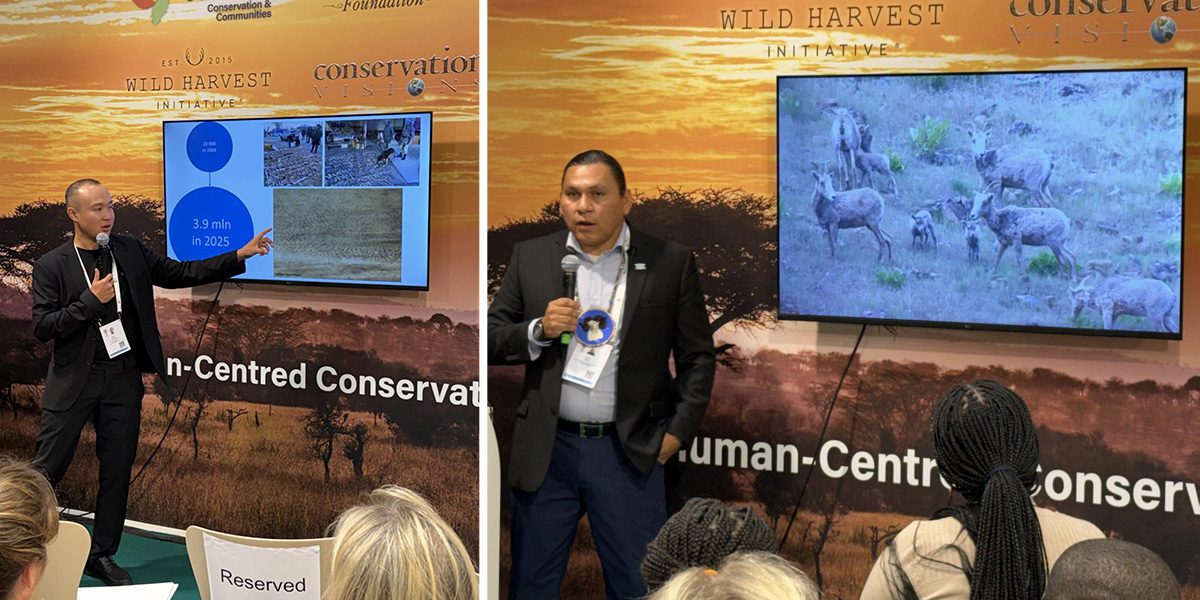
The Wild Sheep Foundation (WSF) recently concluded its presentations at the International Union for Conservation of Nature (IUCN) World Conservation Congress in Abu Dhabi, United Arab Emirates. Attending the 7-day event were conservation experts, leaders, policymakers, and government officials from around the world.
“With global conservation as the main focus of IUCN and its member organizations, which include the Wild Sheep Foundation, we were surprised that WSF was the only hunting-based organization exhibiting in a pavilion and making open presentations,” said Gray N. Thornton, President and CEO of the Wild Sheep Foundation. “We were proud to join some of our hunter-based partner organizations in attendance, but I will say we need more pro-hunting member NGOs at the next Congress in 2029.”
 With only five years remaining until the 2030 deadlines for the Paris Agreement, Sustainable Development Goals, and Global Biodiversity Framework, the IUCN Congresses 2025 and 2029 are critical opportunities to shape the future of wildlife conservation on a global scale and ensure that sustainable use hunting remains a critical component and viable solution for wildlife.
With only five years remaining until the 2030 deadlines for the Paris Agreement, Sustainable Development Goals, and Global Biodiversity Framework, the IUCN Congresses 2025 and 2029 are critical opportunities to shape the future of wildlife conservation on a global scale and ensure that sustainable use hunting remains a critical component and viable solution for wildlife.
“This may seem way offshore because it’s an international gathering,” Thornton commented. “The reality is, decisions made here, good polices advanced and harmful ideas shut down, like trophy import bans and sustainable use as a conservation practice, are impacting us directly here in North America. It’s a numbers game on who will influence what the future of conservation will look like. Those that support the proven track record of sustainable use conservation that benefits lives, livelihoods, and wildlife, and those that believe wildlife is not a resource at all and would be better off valued only for aesthetic reasons. Right now, we’re being outnumbered.”
The theme of the WSF, Conservation Visions, and Jamma Conservation & Communities pavilion was Human-Centered Conservation. Human-Centered Conservation is an approach that places the rights, knowledge, needs, and leadership of people, and specifically indigenous peoples and local communities, at the core of conservation practice. It seeks to achieve both ecological integrity and human well-being through inclusive, locally grounded, and equitable governance systems. Human Centered Conservation is fully aligned with One Health. In the North American context, this is a basic truism that clean air, clean water, healthy wildlife, and healthy ecosystems are critical to the health, mentally, physically, and spiritually, of humans as well.

“The delegates who presented at our pavilion were proud to bring forward, not just philosophical ideas, but real-world, on-the-ground conservation processes, funding models, and programs that have produced measurable results. The WSF delegation presented 20 presentations and participated in six panel discussions from the Wild Sheep Economy, trap and transplants, and guzzler builds, to human & wildlife conflict, and disease detection in wild sheep by canines,” Thornton continued. “I think we turned a few heads and successfully demonstrated that hunters are and must be a trusted steward of wildlife and not the enemy, as many are erroneously being led to believe.”
The WSF delegation of speakers includes: Gray N. Thornton, Kurt Alt, WSF Conservation Director for International Sheep and Goat Programs, Peregrine Wolff, DVM, Executive Manager of the Wildlife Disease Association (WDA) and past WSF Chair, Jacobo Artée, President of the Fundacion De Vida Silvestre En Sonora, A.C, Mexico, Aibat Muzbay (below left), Executive Director of the ARLAN Foundation, Kazakhstan, and Austin Smith (below right), General Manager of the Natural Resources Branch of the Warm Springs Confederated Tribes, Oregon, USA.

“WSF is a proud member of IUCN, and science and facts do matter,” Thornton concluded. “We just need more groups stepping up in these global discussions before emotionally based, misinformed, neo-colonial decisions are made. The only things at stake are people whose cultures and well-being depend on thriving wildlife populations and wildlife themselves, both here in North America and worldwide.”
The Wild Sheep Foundation (WSF), based in Bozeman, Mont., was founded in 1977 by sportsmen and other wild sheep conservationists. WSF is the premier advocate for wild sheep, having raised and expended more than $145 million, positively impacting these species through population and habitat enhancements, research and education, and conservation advocacy programs in North America, Europe, and Asia "To Put and Keep Wild Sheep On the Mountain”. In North America, these and other efforts have increased bighorn sheep populations from historic lows in the 1950s-60s of 25,000 to more than 85,000 today. WSF has a membership of more than 11,000 worldwide.
Tags: Conservation, Press Release